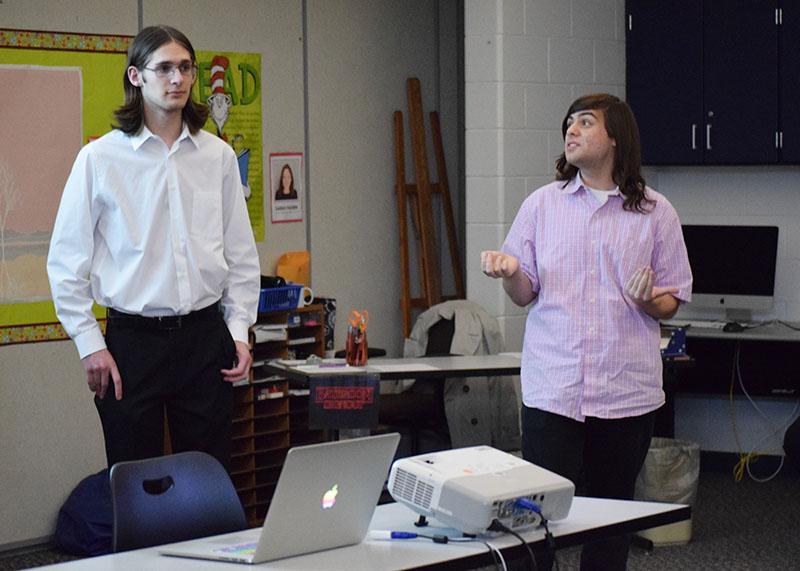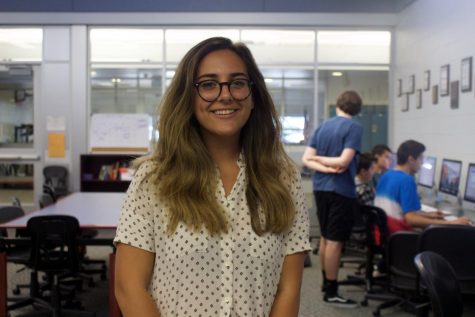Advanced Java students win Congressional App Challenge
Seniors Steven Topper of Ocean, left, and Armando LaMastra of Holmdel were two of four students to win the Congressional App Challenge.
December 18, 2016
Four students from CHS won the Congressional App Challenge for the fourth district of New Jersey on Wednesday, Dec. 7.
The challenge is sponsored by big tech companies like Amazon, Microsoft and Intel, and over 123 districts nationwide participate. Started by Congress, the challenge works to encourage science, technology, engineering and math (STEM) in high school students, said Jo Smith Schloeder, the District Director for Congressman Chris Smith.
For Smith, this year marked the first time he participated in the App Challenge, making seniors Connor Bruneau of Wall, Kevin Dixson of Wall, Steven Topper of Ocean and Armando LaMastra of Holmdel the first winners in the district. Smith and a group of judges went through the applications, and picked the app from CHS as the winner.
These students had been learning Android app coding since September with technology teacher Laura Gesin. They created an app, called RecoLecture, that would help teachers record and upload lectures from their classes while protecting their intellectual property, Gesin said.
On Wed. Dec. 7, Jo Smith Schloeder, the District Director for Smith, visited CHS to give students their official first-place certificates. Parents and Intro to Programming students were also invited to the event, where Bruneau, Dixson, Topper and LaMastra previewed the app and explained how they worked together to create RecoLecture.
Bruneau explained to the audience how the four students created the app as a team.
“We as developers . . .work on the app separately on different parts and then merge it together for the final product,” said Bruneau. Each of them work on separate computers around Gesins classroom and are able to simultaneously code the parts of the app and see each others work.
Dixson mentioned that he had started learning the coding language that Apple apps use, called Swift. That way, the group could create an iOS version of the program and market their app for iPhones.
During the presentation, Dixson briefly explained the challenges of learning Swift.
“There’s hard feelings for Swift out there, because it takes everything that is a common thread throughout programming languages and throws it out the window,” Dixson said. “It’s just really different.”
Another challenge of using iPhone technology to sell the app is that Apple charges a developer fee of $100 a year to have an app featured on their store, according to Gesin. But during the presentation, LaMastra said that moving forward with the iPhone version of the app was a step he wanted to take.
“If we go further with this app . . . we definitely would have to make an iOS version, but for this semester we’re aiming for just the Android version,” LaMastra said. Gesin said she hopes the app will release on the Google Play store once the students finish programming completely.The decision whether to charge for the app is up to the students.
After their presentation, Schloeder read a statement to the four students from Congressman Smith regarding the importance of the challenge, “apps like yours are crucial to society and the world.” Schloeder also touched upon the importance of STEM workers, especially coders, in the future job market.
Gesin also took a moment to express her feelings about her students’ success during the presentation.
“I find it very impressive what they’ve been able to do in the last three months,” said Gesin.





